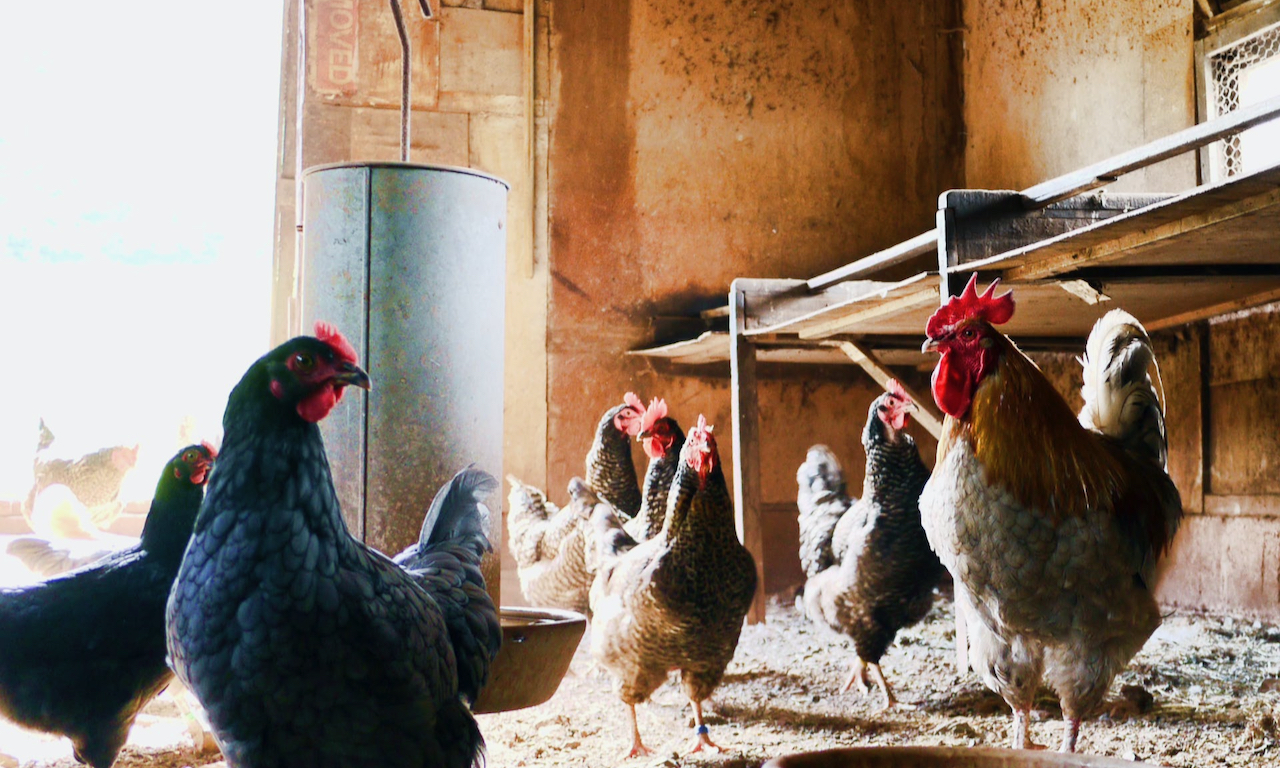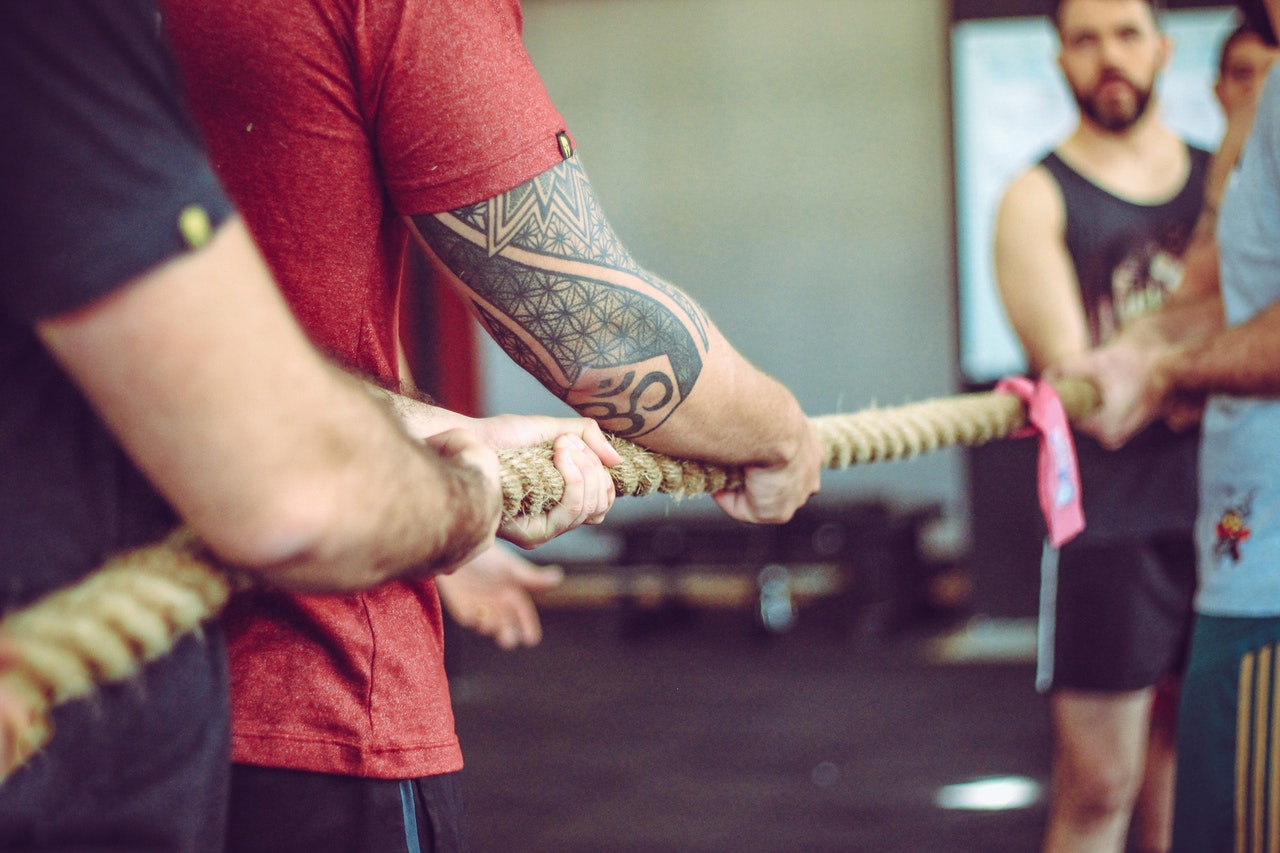Proclaimer
LANZ is responsible for the content of this website and does its utmost to display all information correctly and completely. Is something not correct or is something not working properly? Then let me know and send me an email. I would like to search together for a good solution.

Just chewing on something different in the managementteam or work meeting can have surprising consequences. A long-sought breakthrough, better priorities, a new perspective. Departing from routine creates space and causes movement. Change on the go® is just one step away.
In this space, I share questions with you that trigger ‘other’ conversations and promote dialogue culture.
I bumped into them or they came to me spontaneously. They cover all kinds of issues, from leadership and performance to ‘out of the blue’ topics.
Ask one, any one, in a consultation or meeting where things are not flowing, energy is low or the same people are always talking. Then notice how it affects the time and way to take decisions, and to effectiveness and job satisfaction.
.kicking
Should humans adapt to the system, or the system be built around humans?
Read the blog Kicking and take a critical look at your own reality together. Remember, asking questions fosters a culture of dialogue. So hold back a little, ask a little more and listen a little more. It yields a lot. In this case, a critical look at the systems you have in place within your organisation and whether they are really as serving as you think.
Source: NRC 5 January 2024, science section ‘Veehouderij – Kan een kip nog wel een kip zijn?’ by Marcel aan de Brugh

.culture in motion
What if diverging cultures are coming together? What do you have to endure together? And what does it yield when you combine traditions of these cultures?
Watch this amusing Christmas film ‘Så var det jul igjen’, or ‘Christmas as usal’ and draw your own conclusions, including why this film has an age restriction of 12 years 🤔.
Remember, asking questions promotes dialogue culture. So hold back a little, ask a little more and listen a little more. It yields a lot. In this case, understanding of another culture and perhaps inspiration and space for verniewuing.
Source: Film ‘Christmas As Usaual’
.intrapreneur
How might you foster entrepreneurship within your team or organisation?
Start by sharing and sorting the answers to the following questions:
– What would you do if you were not afraid of being fired?
– Who could help you with it?
– When would you make it public?
– Where would you ask for forgiveness afterwards?
– What of it is really achievable, what might be too ambitious?
Remember, asking questions fosters a culture of dialogue. So hold back a little, ask a little more and listen a little more. It yields a lot. In this case, impetus and new energy.
.Source: Pinchot, G.; Intrapreneurship

.noise
Malfunctions in human communication. They often arise when heart, head and hands are not aligned, or according to the logic of communication gaps because:
_feeling is not always thinking
_thinking is not always saying
_saying is not always hearing
_hearing is not always understanding
_understanding is not always to accepting
_accepting is not always doing
Quite a few gaps to bridge. Curiosity, wanting to understand the other person, to feel, helps. And, of course, asking lots of questions. So hold back a little, ask a little more and listen a little more. It pays off big.
Source: Commercial LANZ ‘Want to change’
.tattoo
Having fun together at work. It is an important prerequisite for team development, and is too often underestimated. ‘Having fun is something you do in your spare time, not at work,’ I hear it regularly. However, what does it do to you as a person and as a team when you manage to have a good time together? To not talk about work once in a while? Hence, today I offer you a question that might be a bit uncomfortable for some. Just do it and undergo it together. It’s always not so bad afterwards. Moreover, giving a little insight does something to the relationship. Here it comes:
If you were to get a tattoo (again): what motif would you choose? Then sketch the tattoo on a paper and, once your turn to share, also tell where you would place it.
Remember, asking questions encourages a culture of dialogue. So hold back a little, ask a little more and listen a little more. It pays off handsomely. In this case, fun.

.computer says ‘no’
We live more and more in world of data and analytics. But to what extent does this really give us control over our choices and what our lives look like? Or does using data sometimes come in handy for us? Like for example for a cycling buddy of mine, who concluded last week, based on feedback from his bike computer, that he couldn’t ride with me the next day. Because his bike computer reported back that, based on his exertion, he needed a few days of rest.
So the question to your (management) team: To what extent do we let data and analysis guide our choices? Where would we rely, or need, more on data and analysis? Instead, where should we rely more on our gut?
Remember, asking questions fosters a culture of dialogue. So hold back a little, ask a little more, and listen a little more. It pays big dividends.

.thermal
In the film ‘The two Popes’, the Pope, in a dialogue with the Cardinal, asks himself whether he is still the one to lead the church through this phase. I am happy to forward this question to you and your team. Given the challenges ahead, for which are you the right person, and for which are you not? What could other team members do better than you? Conversely, what do you think you could do better than others? What keeps you from relinquishing it, respectively from claiming it?
Remember, asking questions fosters a dialogue culture. So hold back a little bit, ask a little more and listen a little more. It yields a lot. In this case, support. In this case, a thermal effect.
Source: Film “The Two Popes”
.blank
As an organisation, how do you keep your head above water in an ever-changing world? Jim Collins has researched it and shared his insights and conclusions in the book ‘Great by choice’. The ‘spot on’ question from this book to me was: What would a new (management) team do differently from us?
Together, answer this question briefly and powerfully as a (management) team. Say goodbye to the ‘old’ team. As the ‘new’ team, put into practice immediately.
Source: Boek ‘Great by Choice’
.adventure
It is a book I gave myself as a gift: One year on a bike. The reason? I’m toying with the idea of ‘circumnavigating’ the Mediterranean by bike. Not right now. Perhaps later, when my children are out of the house. With this in mind, I was curious about the experiences of people who have already done this.
You can already feel the question coming. You may be wondering if this is an appropriate question in a business context. It reminds me of a Q&A session in which an experienced manager reflected back afterwards that he could especially appreciate the personal questions the most. So, check-in question for the next (management) team meeting: what adventure would you like to go on?
Source: Book ‘One Year On a Bike’
.discover
This time not a question, but a tool to promote dialogue culture. Instead of posting an opening question at the next (management) team session, invite your colleagues to experiment with the following technique: fathom each other’s input by asking “why?” five times.
As shared earlier, remember that asking questions fosters a dialogue culture. So hold back a little bit, ask a little more and listen a little more. It yields a lot. In this case, depth.
Source: Book Design Thinking Toolbook

.thick rules
Historian Lorraine Daston examines man’s appetite for rules and concludes that ‘thin rules’ – strict, unambiguous regulations – rarely make it. This is in contrast to ‘thick rules’, which allow room for interpretation, require examples to understand them and allow exceptions.
Rules. We need them. They provide orientation and direction, if not ‘too thick’. Sometimes ‘thin’ is just useful and necessary, like traffic rules, for example. However, ‘too thin’ often limits people’s autonomy. But what is many times more important: do those, who impose the rules, also live the rules themselves? Would they also respect them conscientiously if they were among those who have to apply them? Take a critical look at yourself, alone or as part of a team. I can imagine a lot of thin rules collapsing.
Remember, asking questions fosters a culture of dialogue. So hold back a little, ask a little more and listen a little more. It pays big dividends.
Source: Lorraine Daston. ‘Rules. A Short History of What We Live By.’

.guts
Most of the times we all know. However, do we also dare to face it and say something about it? The film ‘Glass oninon: A knives out mystery’ reminded me of the fairy tale of ‘The Emperor’s New Clothes ‘. Who will be the first to dare say something about it? Who joins in? Are you the only one? Or are there more of them than you think?
Opening question for the next (management) team session that immediately puts everyone on the edge of their seat: What patterns do we see in our team? What are conducive? What patterns are hindering? The first to answer this question provides the conversation depth. Who dares to take on this responsibility?
Source: Film ‘Glass Onion’
.suppleness
I often use a diversion from the slogan at home to motivate my children. ‘The homework is the test. The test is the homework.’ The idea behind it? How can I ensure that they remain relaxed under pressure? By extension, the question to the (management) team could be: What are the smooth moments where we could stretch the edges to, then, do the right things under tension?
By the way, the original slogan in the film ‘Home team’ is: ‘The training is the game. The game is the training.’
Source: Film ‘Home Team’
.track
One-shot scene created by Klaas Arie Westland. Watch the short film with your (management) team and then ask each person to share the issues where they are not really making progress at the moment, or are not making or cannot make enough speed? And what each could do to help the other?
Remember, asking questions fosters a dialogue culture. So hold back a little bit, ask a little more and listen a little more. It yields a lot. In this case, support.
Source: Commercial LANZ ‘Need to change’

BOFfertjes
factory
®
.now
Lanz Organisatie & Advies BV
Van Pallandtstraat 45
NL • 6814 GN Arnhem
+31 (0)6 2096 3032
alex@lanz.org
lanz.org
KvK Arnhem: 50588664
BTW: NL 8228 22623 B01